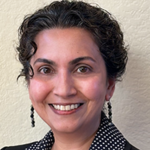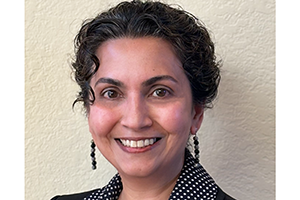The university’s Center for Excellence in Teaching and Learning is gearing up for the next phase of online teaching and learning – enhancing, expanding and improving what’s already being done.
While the university’s faculty and staff did an amazing job of moving more than 6,000 courses online in a very short time in the spring semester, said Diane Reddy, director of CETL, “We have this tremendous opportunity now to actually get in there and raise the quality of the online and blended courses we offer at UWM for the fall and beyond.”
During the two-week period this spring when courses were suddenly moved online, instructors learned quickly, used all their creativity and ingenuity and asked lots of questions, Reddy said. “They did it all with compassion for their students. They did an incredible job.”
Work this summer is focused on increased professional development for online and blended teaching, she said. “We’ve always been such a strong leader, with more high quality online courses than any institution, public or private, in the state of Wisconsin. Moving forward we’re looking at how we can enhance the quality of all our courses, whether they’re online, blended or face-to-face.”
Online or webinar
One key part of that effort is two new formats for the Online and Blended Teaching Program. The program is now being offered to instructors in both an asynchronous online format and a webinar version, with participants able to complete it in either version or in a mix of versions. Each core module in the webinar version will last an hour, with time set aside for questions, according to Reddy.
“We want to give programs to people to meet their preferences,” Reddy said. “Some people like to learn at their own pace. Others like a webinar where they have a lot of their questions answered.”
The six initial modules will focus on key topics: teaching online courses, engaging students, delivering content, building community, supporting students and evaluating the course. Instructors can earn a digital badge for completing the Online and Blended Teaching Program, and can earn the Certificate in Online and Blended Teaching sponsored by the provost if they also design a course and have it evaluated.
Different classes, different approaches
The next step will be creating six optional modules. One module, for example, would focus on teaching large enrollment courses.
“It’s quite different if you have 30 students as opposed to more than 50,” said Reddy. Another module would look at teaching online in different disciplines, focusing on broad topic areas such as the humanities, social studies and the professions, she added.
Other topics in the optional modules could include teaching blended and flipped courses, teaching synchronously; teaching labs online; teaching accelerated courses (such as summer and UWInterIM courses).
By mid-July, the goal is to offer the optional modules both asynchronously online and in a one-hour webinar format.
CETL will be reaching out to instructors to gather and share exceptional teaching “artifacts” that they’ve used successfully in their online and blended courses. The artifacts selected through the OBTP Commons Initiative will be shared through Canvas Commons. Incentives for selected contributions are being funded by the UW System’s Office of Academic Programs and Educational Innovation:
- $500 for an entire course of exceptional quality
- $200 for a course module of exceptional quality
- $100 for an assignment, quiz, discussion, page, document, or video of exceptional quality
CETL will also offer other new online teaching courses such as Canvas 4: Gradebook, Canvas 6: Content Delivery, and Canvas 7: Discussion and Groups, and continue to offer Proctorio, for proctoring tests.
Looking ahead to fall
A key focus for fall will be preparing new faculty and instructors, teaching assistants and others who are new to online teaching.
“I think our role in CETL is now that we did this, where can we go from here?” said Reddy. “We want to enhance the quality, not just of the courses that went up, but across the board as an institution.”
Information on accessing the self-paced and webinar versions of the Online and Blended Teaching program and the OBTP Commons Initiative is available through the CETL website.







